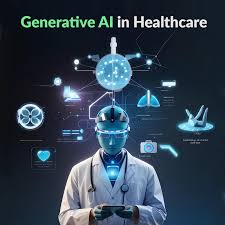The healthcare industry is undergoing a significant digital transformation, with generative AI and chatbots playing a prominent role in various patient engagement applications. Technologies such as online symptom checkers, appointment scheduling, patient navigation tools, medical search engines, and patient portal messaging are prime examples of how AI is enhancing patient-facing interactions. These advancements aim to alleviate staff workload while improving the overall patient experience, according to industry experts.
However, even these patient-centric applications face challenges, such as the risk of generating medical misinformation or biased outcomes. As healthcare professionals explore the potential of generative AI and chatbots, they must also implement safeguards to prevent the spread of false information and mitigate disparities in care.
Online Symptom Checkers
Online symptom checkers allow patients to input their symptoms and receive a list of potential diagnoses, helping them decide the appropriate level of care, whether it’s urgent care or self-care at home. These tools hold promise for improving patient experiences and operational efficiency, reducing unnecessary healthcare visits. For healthcare providers, they help triage patients, ensuring those who need critical care receive it.
However, the effectiveness of online symptom checkers is mixed. A 2022 literature review revealed that diagnostic accuracy ranged between 19% and 37.9%, while triage accuracy was higher, between 48.9% and 90%. Patient reception to these tools has been lukewarm as well, with some expressing dissatisfaction with the COVID-19 symptom checkers during the pandemic, mainly when the tools did not emulate human interaction.
Moreover, studies have indicated that these tools might exacerbate health inequities, as users tend to be younger, female, and more digitally literate. To mitigate this, developers must ensure that chatbots can communicate in multiple languages, replicate human interactions, and escalate to human providers when needed.
Self-Scheduling and Patient Navigation
Generative AI and conversational AI have shown promise in addressing lower-level patient inquiries, such as appointment scheduling and navigation, reducing the strain on healthcare staff. AI-driven scheduling systems help fill gaps in navigation by assisting patients with appointment bookings and answering logistical questions, like parking or directions.
A December 2023 review noted that AI-optimized patient scheduling reduces provider time burdens and improves patient satisfaction. However, barriers such as health equity, access to broadband, and patient trust must be addressed to ensure effective implementation.
While organizations need to ensure these systems are accessible to all, AI is a valuable tool for managing routine patient requests, freeing staff to focus on more complex issues.
Online Medical Research
AI tools like ChatGPT are expanding on the “Dr. Google” phenomenon, offering patients a way to search for medical information. Despite initial concerns from clinicians about online medical searches, recent studies show that generative AI tools can provide accurate and understandable information. For instance, ChatGPT accurately answered breast cancer screening questions 88% of the time in one 2023 study and offered adequate colonoscopy preparation information in another.
However, patients remain cautious about AI-generated medical advice. A 2023 survey revealed that nearly half of respondents were concerned about potential misinformation, and many were unsure about the sources AI tools use. Addressing these concerns by validating source material and providing supplementary educational resources will be crucial for building patient trust.
Patient Portal Messaging and Provider Communication
Generative AI is also finding its place in patient portal messaging, where it can generate responses to patient inquiries, helping to alleviate clinician burnout. In a 2024 study, AI-generated responses within a patient portal were often indistinguishable from those written by clinicians, requiring human editing in only 58% of cases.
While chatbot-generated messages have been found to be more empathetic than those written by overworked providers, it’s important to ensure AI-generated responses are always reviewed by healthcare professionals to catch any potential errors.
In addition to patient engagement, generative AI is being used in clinical decision support and ambient documentation, showcasing its potential to improve healthcare efficiency. However, developers and healthcare organizations must remain vigilant about preventing algorithmic bias and other AI-related risks.













